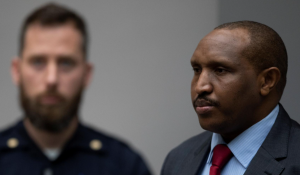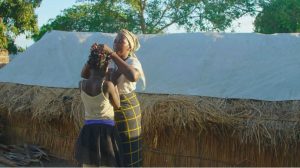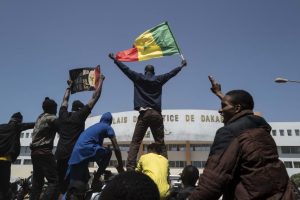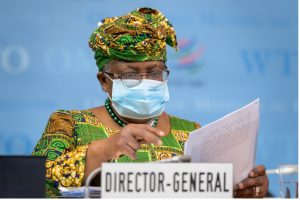By: Samuel Schimel
Impunity Watch Staff Writer
THE HAGUE, Netherlands – Bosco Ntaganda, whose armed forces terrorized the eastern Democratic Republic of Congo, was once again on trial in Chamber VI of the International Criminal Court (“ICC” or “Court”) on March 8th, 2021. What was conveyed by the Chamber in a public hearing was the formation of an Order of Reparations to victims under Article 75 of the Rome Statute in the case of The Prosecutor v. Bosco Ntaganda. Ntaganda was originally sentenced by the ICC to 30 years in prison for war crimes and crimes against humanity on November 7th, 2019. In the 2021 decision, the Chamber, composed of Judge Chang-ho Chung, Judge Robert Fremr, and Judge Olga Herrera Carbuccia, set the reparations award, for which Ntaganda is liable, at a total of USD 30,000,000.

Nicknamed the “Smiling Terminator,” among others, Ntaganda was first indicted in 2006 for allegedly recruiting child soldiers during the Democratic Republic of Congo’s five-year war. He was a member of the Rwandan-backed Congrès national pour la défense du peuple – National Congress for the Defense of the People (CNDP), a rebel group that has committed countless atrocities against civilians. While a part of this group, he orchestrated an attack where 150 people were killed over two days in the town of Kiwanja, North of Goma. Ntaganda was integrated into the Congolese army and became a general. He commanded military operations in eastern Congo after an agreement was reached between the Congolese Army and the Rwandan government. For many Rwandan donors, the final straw was Ntaganda’s creation of the M23, another rebel group backed by Rwanda. As the leader of the group, Ntaganda orchestrated many other attacks on villages, executed hundreds of people, and was accused of rape, torture, and the forceful recruitment of child soldiers.
He surrendered to the U.S. embassy in Kigali, Rwanda’s capital, in March 2013, and was transferred to the Hague some time afterward. Ntaganda was convicted on thirteen counts of war crimes followed by five counts of crimes against humanity. These counts included murder, rape, and sexual slavery committed during the conflict in the East of the Democratic Republic of Congo, in 2002 and 2003. On the basis of the Rome Statute, Ntaganda was sentenced to 30 years of imprisonment.
Given his criminal history, the eligible victims for reparations are direct and indirect victims of the attacks, victims of crimes against child soldiers, victims of rape and sexual slavery, and children born out of rape and sexual slavery. The Chamber notably found that the priority shall be given to individuals who are in need of immediate medical and psychological care, victims with disabilities, the elderly, victims of sexual or gender-based violence, victims who are homeless or have encountered financial hardship, as well as children born out of rape and sexual slavery and former child soldiers. A gender-inclusive and sensitive approach to the reparations will also be instituted.
The Chamber additionally encouraged the Trust Fund for Victims to add funds that would accompany the reparation awards, to the extent that is feasible given its available resources, and to take part in additional fundraising efforts as necessary to accompany the totality of the award. The Trust Fund for Victims was asked to create a draft implementation plan on the basis of all the modalities of reparations identified in the order, with the victim’s input. These modalities of reparations within the order incorporate measures of restitution, compensation, rehabilitation, and satisfaction, which may incorporate, when appropriate, a symbolic, preventative, or transformative value. The due date for the Trust Fund’s plan is September 8th, 2021 and an urgent plan for priority victims is due on June 8th, 2021.
Ntaganda’s name is still likely to send chills across the citizens of the Congo and he is particularly remembered for his ruthlessness. Many of the victims of Ntaganda’s crimes have been forced into exile since they were threatened with more suffering if they dared to speak up against him during his trial. Hopefully, the judgment can be of some consolation to the victims, and may they finally be given the reparations they deserve.
For further information, please see:
BBC – Bosco Ntaganda – the Congolese ‘Terminator – 8 July
International Criminal Court – Bosco Ntaganda sentenced to 30 years’ imprisonment – 7 Nov. 2019
Reuters – War crimes court orders record $30 million compensation for Congo victims – 8 Mar. 2021


